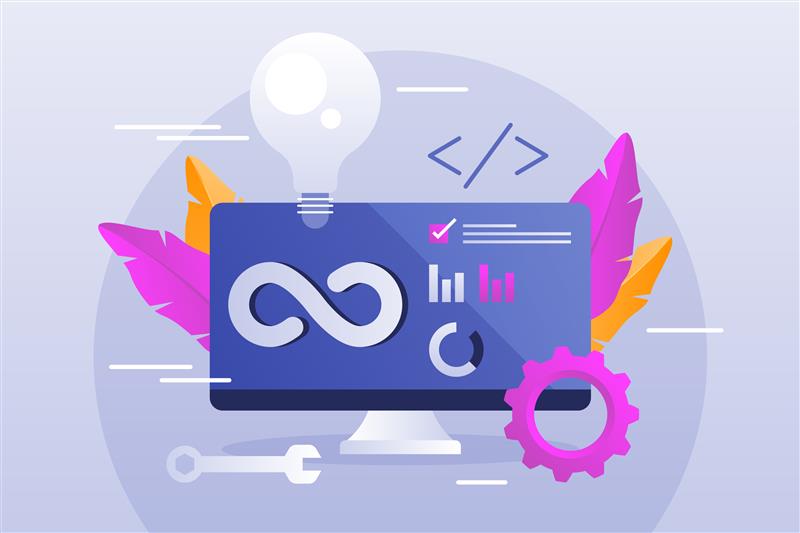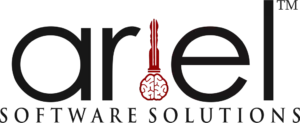
Imagine an AI model that stays one step ahead—adapting to new data, evolving with trends, and providing accurate predictions without manual intervention. Continuous Learning in AI with Azure DevOps enables exactly this kind of adaptability. In today’s fast-paced world, where yesterday’s data might already be outdated, adaptive AI is crucial for staying competitive.
However, achieving this adaptability requires a robust framework to manage data pipelines, streamline retraining, and automate deployment. That’s where Azure DevOps AI automation shines, giving teams the tools to efficiently manage the entire AI workflow from start to finish.
If you’re curious about how Azure DevOps enhances both adaptive learning and release management, don’t miss our blog on “Effective Release Management Using Azure DevOps” It’s packed with insights to streamline your software deployments!
Let’s explore how Azure DevOps supports continuous learning in AI, ensuring that models don’t just keep up—they lead the way.
Why Continuous Learning is Critical in AI
AI models rely on vast amounts of historical data to make accurate predictions. But as data changes, models need to adapt or risk becoming obsolete. Continuous learning ensures models stay relevant in these dynamic environments. Here’s why it’s indispensable:
- Prevention of Model Drift:
As data distributions evolve, models may experience “drift,” leading to decreased performance. For example, a recommendation engine on an e-commerce platform might lose accuracy as customer preferences shift.
- Adaptability to Real-World Changes:
Continuous learning enables AI models to adjust to new trends, regulatory changes, or seasonal shifts in real-time.
- Maintaining Compliance and Security:
In sensitive fields like finance and healthcare, updating models is crucial to align with new regulations and counter emerging security threats.
How Azure DevOps Powers Adaptive AI Models
Continuous Learning in AI with Azure DevOps integrates complex workflows to support data ingestion, model training, deployment, and monitoring. Let’s look at the main ways Azure DevOps AI automation helps make adaptive AI models a reality.
1. Automated Data Pipelines for Continuous Data Flow
For effective continuous learning, models need access to the latest data. Azure DevOps Pipelines allow developers to automate data ingestion, transformation, and validation to ensure fresh data is consistently available. Key features include:
- Automated Data Ingestion:
Azure Data Factory and Azure DevOps Pipelines automatically pull data from various sources, such as databases, IoT devices, and cloud storage. - Data Transformation and Preprocessing:
Azure Machine Learning (Azure ML) within Azure DevOps allows for automated data cleaning, scaling, and formatting, ensuring model-ready data. - Quality Checks and Data Validation:
Checkpoints within Azure DevOps Pipelines validate data quality before it feeds into the training pipeline, reducing errors and maintaining accuracy
With these automated data pipelines, Azure DevOps AI automation reduces the need for manual data management, ensuring that the latest and most accurate data powers each iteration of the model.
2. Efficient Model Training and Retraining with CI/CD Automation
Azure DevOps provides an integrated environment for both initial model training and continuous retraining, ensuring models stay accurate and reliable. Here’s how Continuous Learning in AI with Azure DevOps enhances both processes:
- CI/CD Pipelines for Training and Retraining:
Azure DevOps supports CI/CD pipelines that automate model retraining based on new data or model accuracy thresholds. This setup ensures ongoing optimization without manual intervention. - Version Control and Model Registry:
Using Git version control with Azure ML, teams store and manage model versions in a centralized registry, making it easy to compare, roll back, or redeploy models as needed. - Scalable Computing Resources:
Azure ML Compute Clusters within Azure DevOps offer scalable processing power for training and retraining large datasets, minimizing processing time.
Through CI/CD workflows in Azure DevOps AI automation, data science teams can continually deploy updated models efficiently, maintaining agility in adaptive learning.
3. Real-Time Monitoring and Drift Detection
After deployment, adaptive AI requires continuous monitoring to ensure optimal performance. Azure DevOps AI automation offers real-time monitoring tools and drift detection, enabling proactive management. Key capabilities include:
- Automated Performance Tracking:
Track metrics like accuracy and F1 score in real time with Azure Monitor, assessing model performance on live data. - Drift Detection Triggers:
Define thresholds for drift, so if model performance declines, teams receive alerts, or retraining initiates automatically. - Dashboards for Continuous Insights:
Visualize model performance through Azure Monitor’s dashboards, helping teams diagnose and correct issues early.
With real-time monitoring, Continuous Learning in AI with Azure DevOps empowers teams to address drift swiftly, maintaining the relevance and accuracy of deployed models.
4. Automated Deployment and Feedback Loops
Azure DevOps enables seamless model deployment and establishes feedback loops to improve models iteratively based on real-world data. These mechanisms are critical to adaptive AI. Here’s how Azure DevOps AI automation supports deployment and refinement:
- Rapid Deployment Pipelines:
Azure DevOps Pipelines streamline deployment from the model registry to production environments, facilitating A/B testing and controlled rollouts. - User Feedback Integration:
Collect feedback or behavioral data to incorporate into retraining cycles, ensuring models align with end-user needs. - Automated A/B Testing and Canary Releases:
Azure’s deployment slots allow for simultaneous model versions to be deployed, gathering comparative data for informed model improvements.
These deployment features allow models to remain up-to-date, refining them continuously through Azure DevOps AI automation to deliver better results in adaptive AI systems.
Advantages of Continuous Learning in AI with Azure DevOps

With Azure DevOps AI automation, teams can automate and optimize the entire AI lifecycle. Key benefits include:
- Enhanced Automation for Seamless Workflows
Azure DevOps eliminates manual overhead by automating repetitive tasks like data ingestion, preprocessing, training, and deployment. This allows data science teams to focus on innovation rather than operational bottlenecks.
- Scalable Infrastructure for Complex AI Models
Azure’s cloud-native architecture provides access to virtually unlimited computing power. With scalable resources like Azure ML Compute Clusters, even the most demanding models and datasets can be processed efficiently, ensuring timely updates.
- Accelerated Model Iteration and Deployment
CI/CD pipelines in Azure DevOps enable faster iterations, from training to deployment, significantly reducing time-to-market for new features or improved AI capabilities. This agility is critical for organizations operating in fast-paced industries.
- Real-Time Model Monitoring and Drift Management
Azure DevOps integrates with tools like Azure Monitor to track model performance metrics in real-time. Automated alerts and drift detection mechanisms ensure issues are addressed proactively, keeping models reliable and effective.
- Improved Collaboration Across Teams
Azure DevOps fosters collaboration between developers, data scientists, and operations teams through centralized repositories, version control, and streamlined workflows. This unified approach enhances productivity and minimizes miscommunication.
- Cost Optimization and Resource Efficiency
By automating workflows and leveraging scalable compute resources, Azure DevOps helps organizations cut operational costs while achieving superior model performance. This efficiency makes adaptive AI accessible to businesses of all sizes.
- Better Decision-Making with Adaptive AI
Continuous learning ensures models are always aligned with the latest data trends, enabling more accurate predictions and smarter decision-making. Organizations can use these insights to drive growth, enhance customer experiences, and stay ahead of competitors.
Conclusion

Continuous learning is not just a trend—it’s the future of AI, and Azure DevOps AI automation is the cornerstone of this transformation. By combining automated workflows, scalable infrastructure, and seamless integration with tools like Azure ML, Azure DevOps enables organizations to develop adaptive AI models that evolve with the world around them.
If you’re ready to harness the power of Continuous Learning in AI with Azure DevOps, Ariel Software Solutions is here to help. Our team of experts specializes in designing, implementing, and managing AI-driven workflows tailored to your business needs.
Take the Next Step!
Empower your organization with adaptive AI solutions. Contact us today to explore how Azure DevOps AI automation can revolutionize your AI models and deliver unmatched agility and performance. Let’s build the future of AI, together.




